
New ‘Chromebook Churn’ report highlights problems of short-lived laptops in schools
Chromebooks are not designed to last. Google could double the lifespan of widely used laptops, save schools money, help the environment.
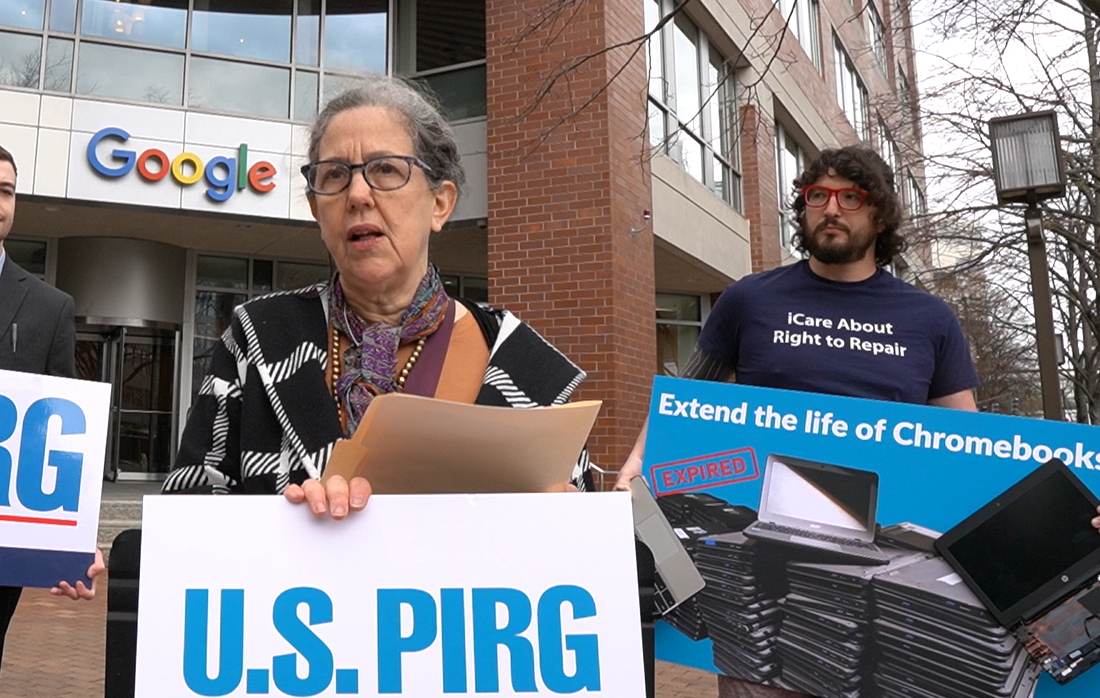
The COVID-19 pandemic pushed schools to provide all their students with their own devices, often low-cost Chromebooks. But now, many of these Chromebooks are failing, according to a new report by U.S. PIRG Education Fund entitled “Chromebook Churn.” We expect expiration dates for milk, but not for laptops.
Doubling the life of just Chromebooks sold in 2020 could cut emissions equivalent to taking 900 thousand cars off the road for a year, that’s close to half the cars registered in Massachusetts.
“We live in a state where people value thriftiness and care about the environment,” said Janet Domenitz, director of MASSPIRG, and part of the release event. “We should keep our electronics working and off the scrap heap, to save consumers money and reduce polluting waste. With the leadership of state Rep. Adrian Madaro and state Sen. Michael Brady, we hope to pass the Digital Right to Repair bill, H360 and S142.
Policies that give every student a laptop are likely here to stay, and the consequences of balancing utility and sustainability are huge. Doubling the lifespan of Chromebooks for the 48.1 million K-12 public school students in the U.S. could save taxpayers $1.8 billion dollars, assuming no additional maintenance costs.
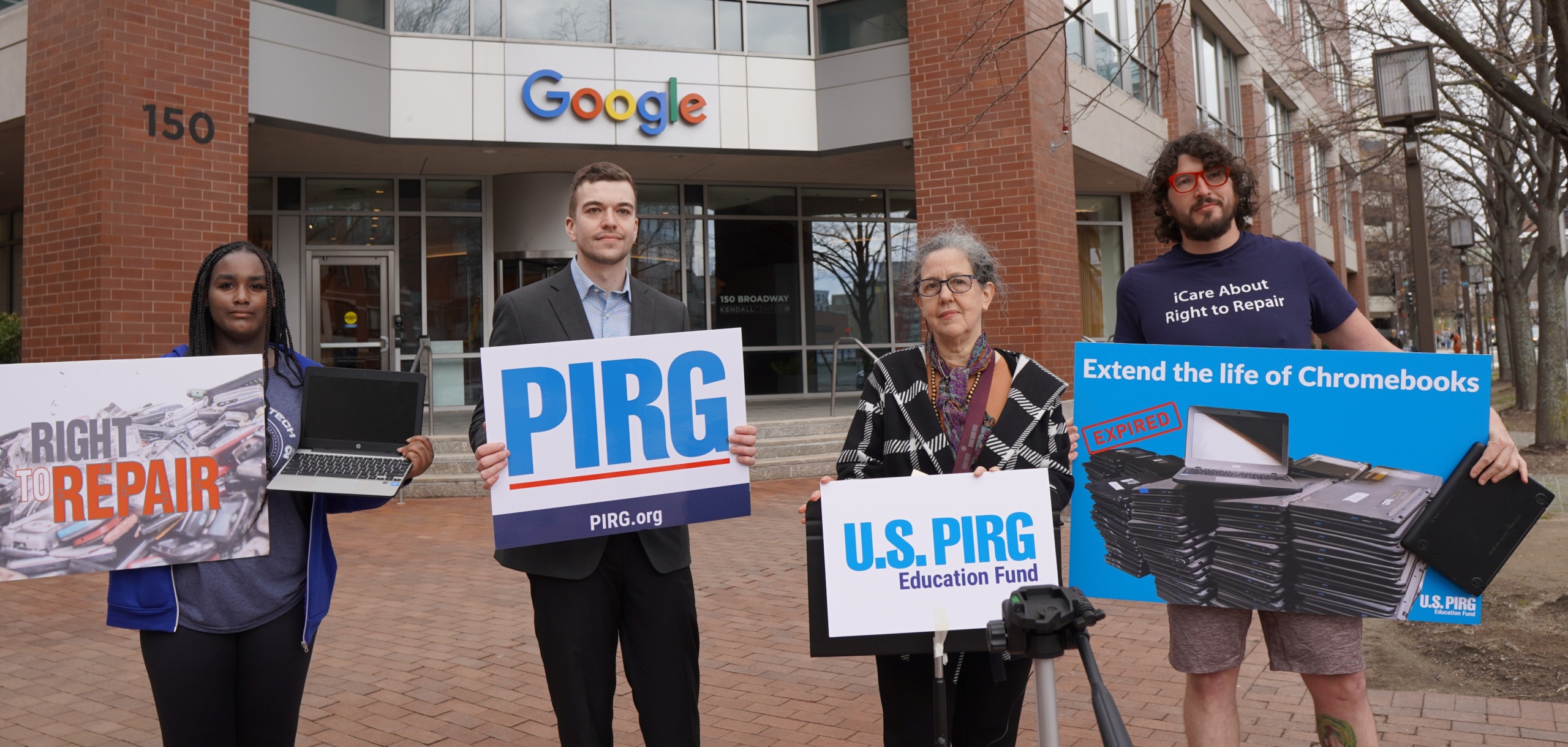

See the Campaign

Right To Repair
Topics
Updates

MASSPIRG goes to Washington to tackle plastic pollution and energy waste
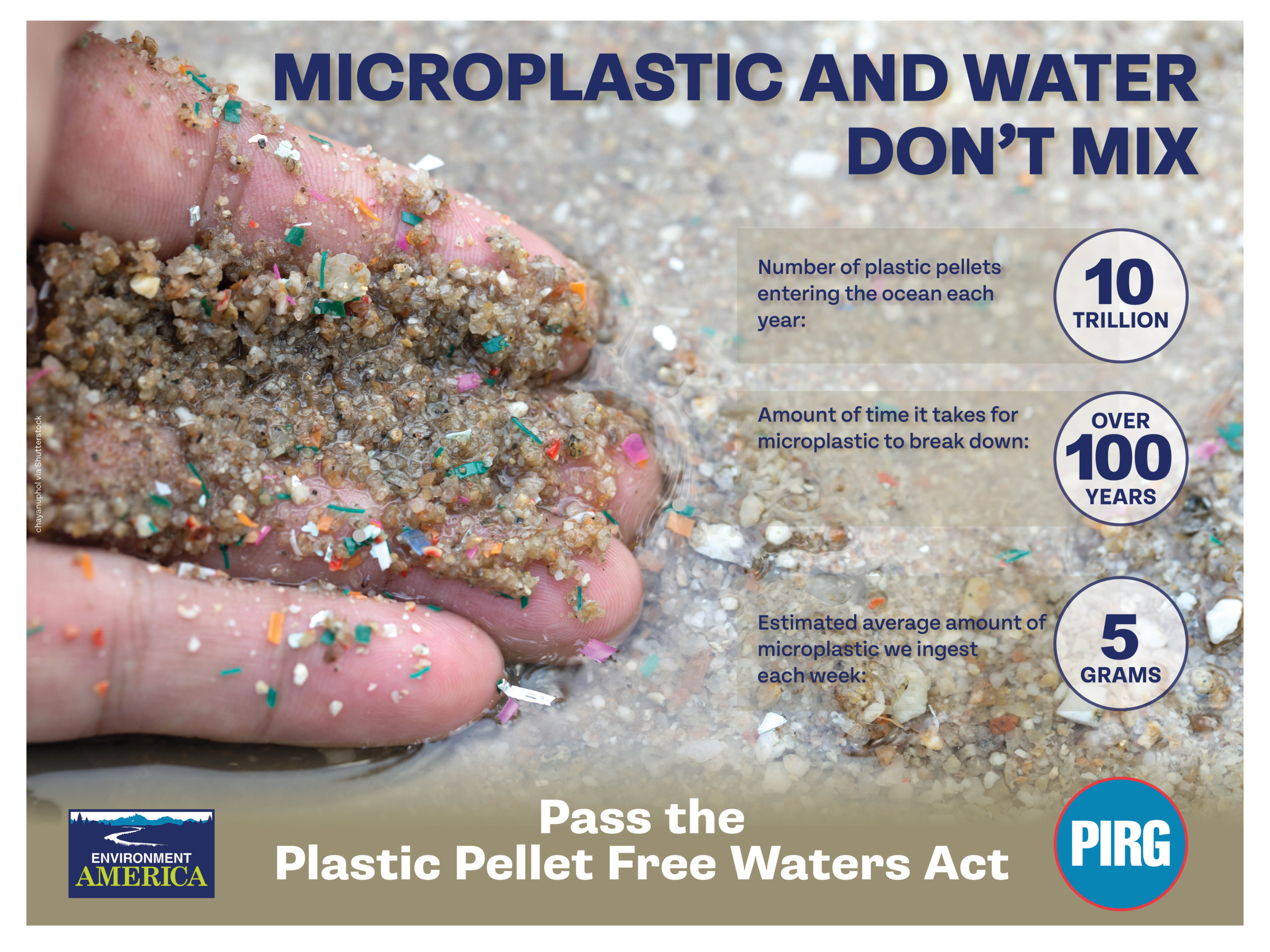
Lobby day secures bipartisan support for the Plastic Pellet Free Water Act

Stop The Overuse Of Antibiotics
Panera Bread backs off of no antibiotics policy
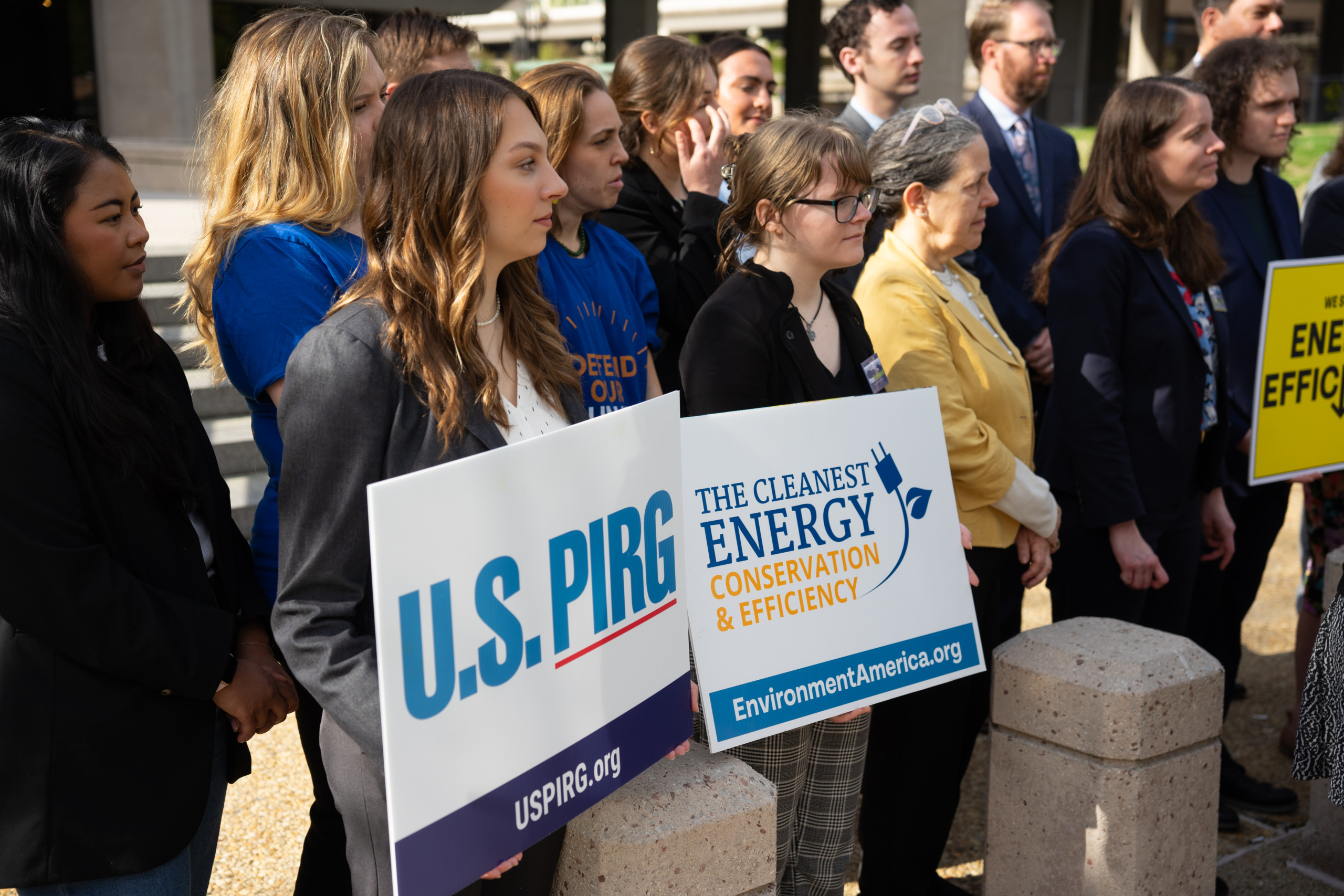
Energy Conservation & Efficiency
Groups urge Biden to ‘Finish the job’ on appliance efficiency
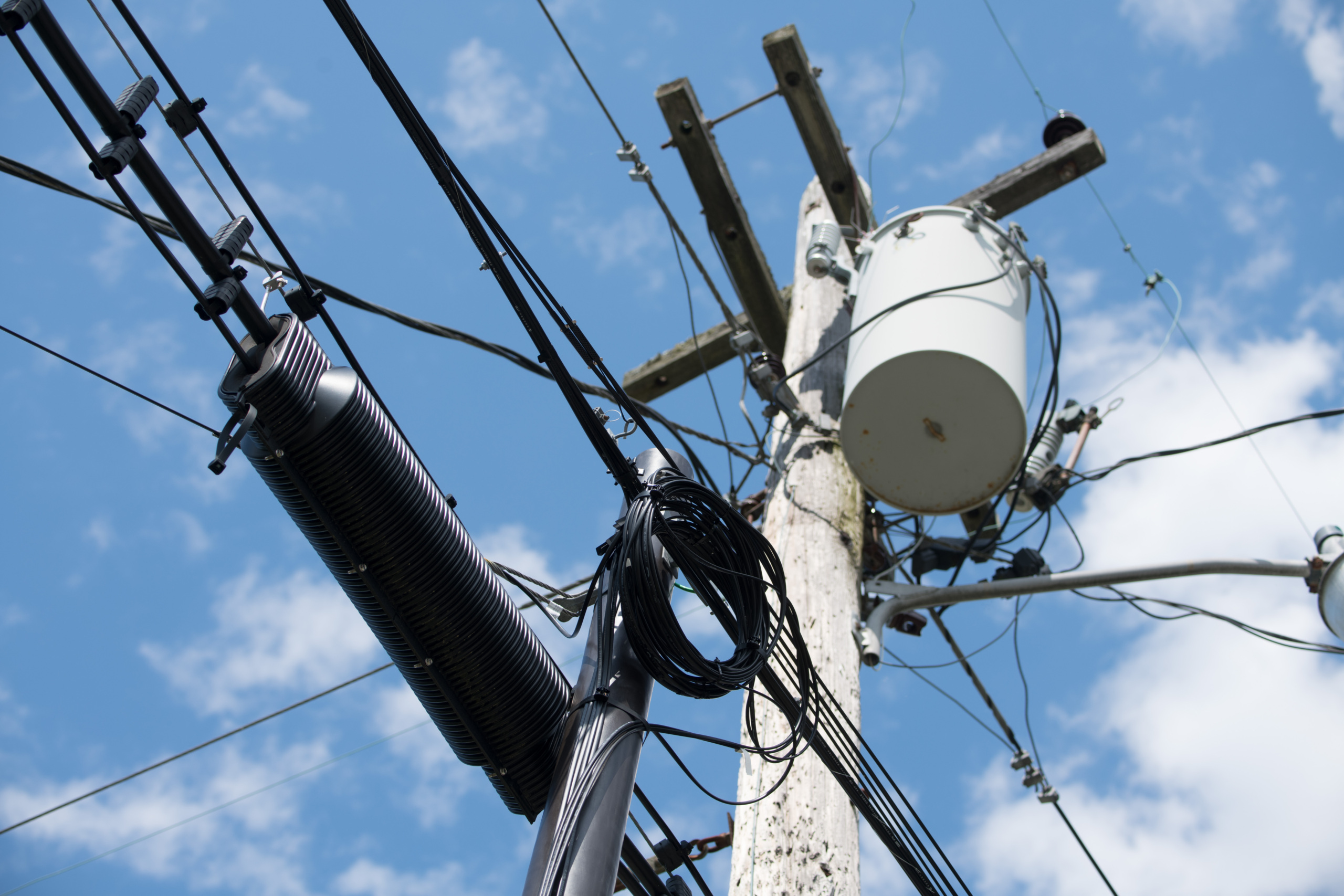
Energy Conservation & Efficiency
